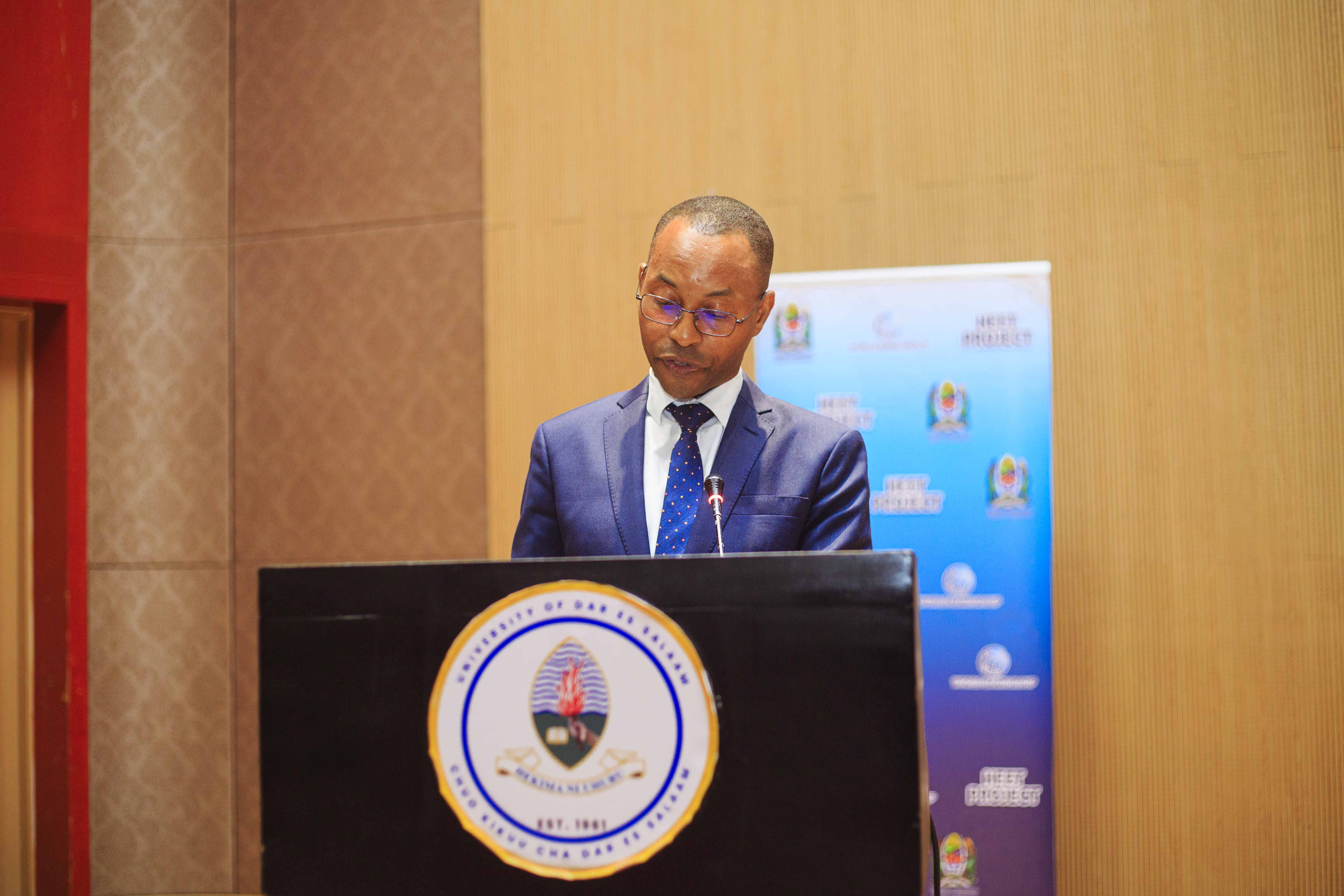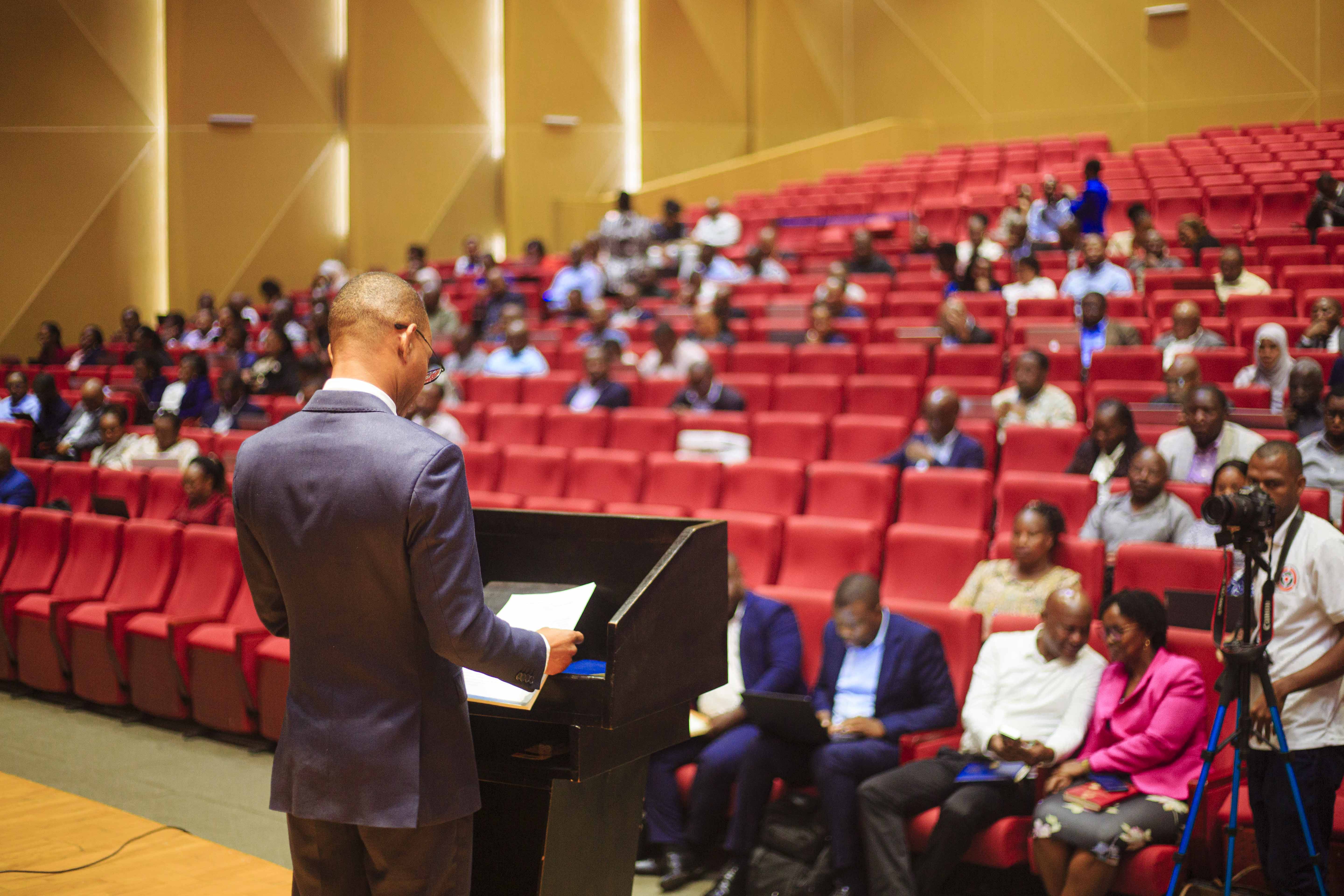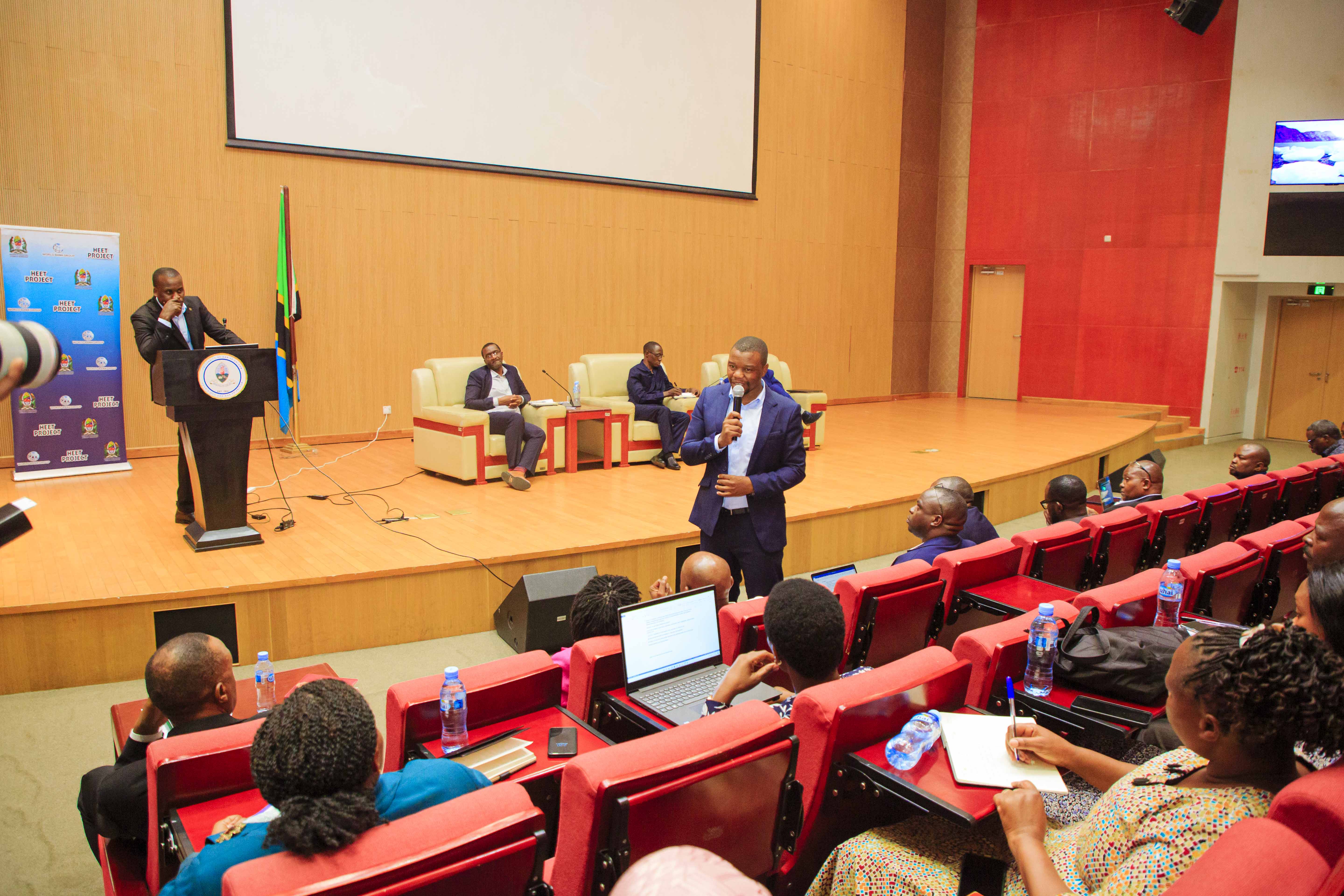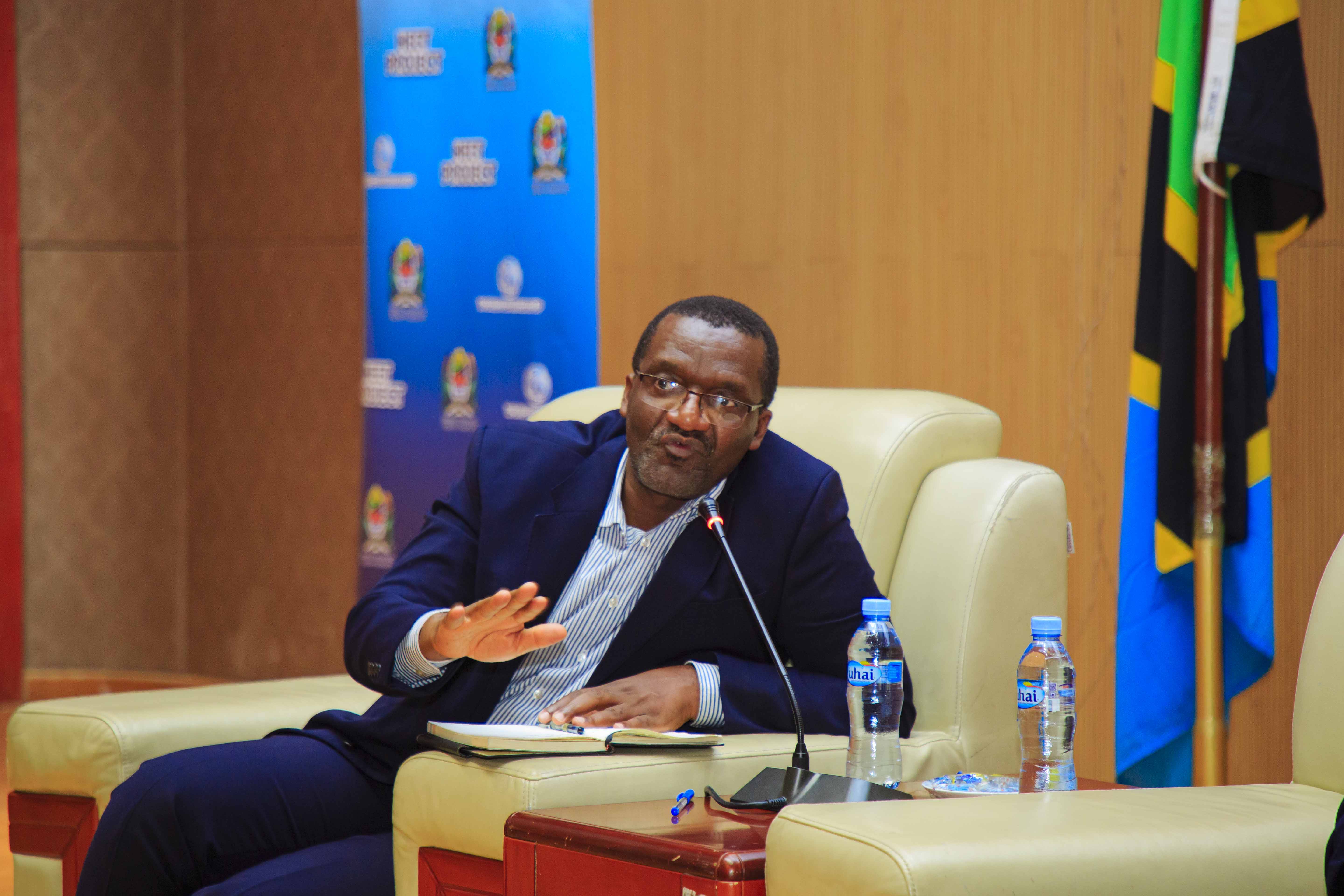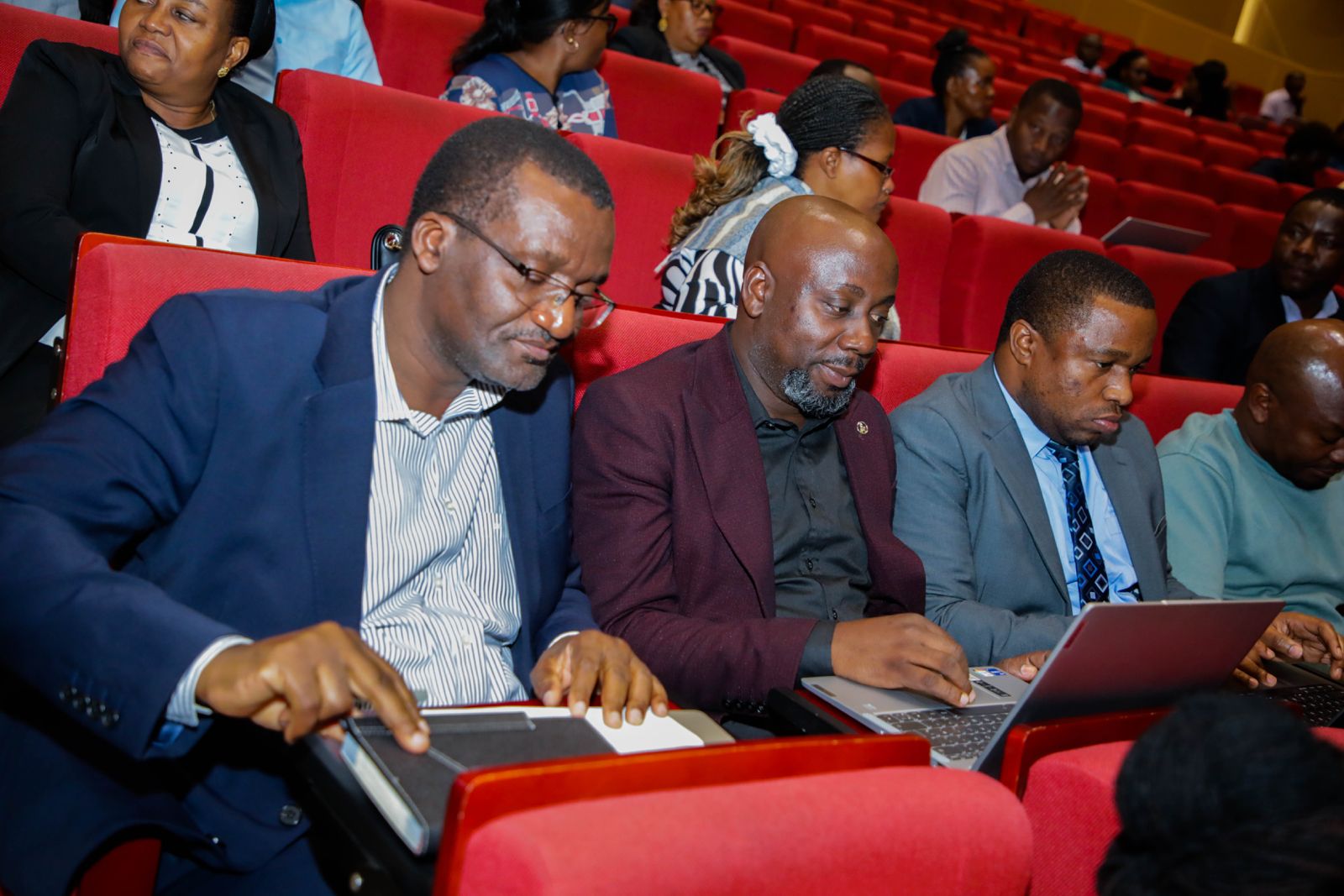HEET Project Nears Completion with 74% National Progress, UDSM Leads as Top Performer
By Wilson Remmy, CMU
The Higher Education for Economic Transformation (HEET) project is on track to revolutionise Tanzania’s academic landscape, having achieved 74% implementation nationwide. The University of Dar es Salaam (UDSM) is at the forefront of this initiative, reporting exceptional progress as the project advances toward its July 2026 deadline.
The update was announced during the National Coordinators Meeting hosted at UDSM from September 15–18, 2025. The National Project Coordinator, Dr. Kennedy Hosea, hailed the milestone as a testament to strategic execution and unwavering commitment from all participating institutions.
“Reaching this significant milestone reflects not only meticulous planning but also the profound dedication of our implementing institutions. We are fully committed to completing this transformative project on schedule,” stated Dr. Hosea.
Representing the UDSM Vice Chancellor, Prof. William A. L. Anangisye, Deputy Vice Chancellor, Research, Professor Nelson Boniface, emphasised the power of collaboration. “This forum is essential for sharing best practices, strengthening synergies, and ensuring the project fully achieves its ambitious national objectives,” he said.
The meeting convened project coordinators, technical experts, and specialists in monitoring, ICT, environmental compliance, industry relations, and communications from across the country.
UDSM Sets the Pace with 80% Implementation
UDSM’s Deputy HEET Project Coordinator, Dr. Liberato Haule, reported that the university has surpassed the national average, reaching 80% implementation as of August 2025. This progress is visible across its campuses, including the Mwalimu Julius Nyerere Mlimani Campus, the Institute of Marine Sciences in Zanzibar, and new campuses in Lindi and Kagera.
The project has driven a tangible infrastructural and digital transformation. “We have renovated and constructed new lecture halls, studios, workshops, and laboratories, upgraded student hostels, and significantly improved accessibility for students with disabilities,” Dr. Haule detailed.
Beyond infrastructure, the project is ensuring academic programmes are directly aligned with economic needs. “Industry experts have been instrumental in upgrading our curricula. Through tracer studies, we have reviewed, removed, and introduced new courses to meet labour market demands, culminating in over 20 programmes now offered online,” he added.
Dr. Haule also highlighted UDSM’s long-term vision, noting the implementation of a ten-year Smart Campus Roadmap to integrate technology into all academic and administrative operations.
A Model of Sustainability and Success
On sustainability, Dr. Haule stressed that plans are in place to ensure HEET’s impact endures well beyond the project’s conclusion. “Our comprehensive sustainability plan covers infrastructure, curriculum reform, ICT digitalisation, capacity building, gender equity, and environmental initiatives. It has been endorsed by university management and is awaiting final approval by the University Council,” he confirmed.
“Crucially, UDSM has successfully achieved 100% of its core project objectives. The first objective related to student and faculty attachments, with a target of 1,369; UDSM far exceeded this by reaching 4,719”, said Dr. Haule.
He further said that the second objective required 60 degree programmes to align with labour market needs, and that target has been met in full. “Finally, the third objective to have 23,162 students benefit directly from the project’s interventions has also been fully achieved”.
Launched in 2022 with a World Bank fund of USD 425 million (approximately TZS 972 billion), the five-year HEET project aims to modernise Tanzania's higher education system. UDSM’s share of the funding is USD 49.5 million.
Communicating a National Transformation
Dr. Hosea commended UDSM for its proactive efforts in publicising the project's benefits and urged other institutions to amplify their outreach. “The HEET project is a cornerstone of national social and economic development. It is crucial that we share these success stories widely,” he said.
Elaborating on UDSM’s strategy, Dr. Dotto Paul Kuhenga, Head of Communication and Marketing and the UDSM-HEET PR Expert, detailed a multi-faceted approach. “We have secured extensive media coverage, produced regular newsletters, developed promotional materials, and managed active social media channels and a dedicated webpage. Field visits and features at major university events ensure the HEET narrative of transformation is consistently visible.”
Through these concerted efforts, UDSM continues to demonstrate HEET's pivotal role in building a future-ready higher education system and a robust knowledge economy for Tanzania.


